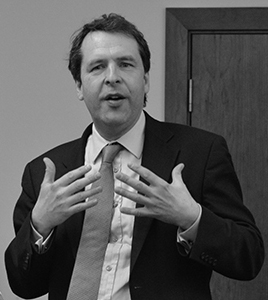Philip Booth: Taxing Families as if They Cause Harm

It is common amongst politicians and economists to suggest that we should tax bad things and subsidise good things. It is on these grounds that, for example, we have sugar taxes and cigarette taxes. The justification for taxing “bads” becomes stronger if the ill effects are felt more widely through society and not just by the consumers.
Anybody looking at our tax system, with this principle in mind, might well conclude that our political class believes that families with two parents, and those families where one parent works part time or works entirely in the home bringing up children or looking after ageing parents, were a very bad thing. After all, we strongly penalise such arrangements in our tax and welfare systems.
In the United Kingdom, tax rates rise with incomes, but assessment for tax is based on individual and not on household or family income. This penalises families that have an uneven split of incomes between the adults – this will mainly apply where you have mothers undertaking caring responsibilities.
Take, for example, a couple where both adults earn £12,500 per annum. They will pay no income tax – literally, no income tax at all. If the same couple is a single-earner couple with one of the adults earning £25,000, they will pay income tax of £2,500. To have the same net income, the single-earner family would have to earn an extra £3,125. This blow is softened, marginally, by the married couples allowance, but this has little effect and it is quickly withdrawn as incomes rise. When you take account national insurance, things get worse. The dual-earner couple actually pays lower national insurance contributions than the single-earner couple, yet the dual earner couple will earn the right to two pensions rather than just one pension (though, in certain circumstances, the second adult in the single-earner couple can accrue state pension rights).
A sum of £3,125 is a lot of money to a couple with children on a low income. Earning this additional sum at the minimum wage would involve the main earner working an equivalent of eight extra weeks across the year. If this is a family with a stay-at-home mum, the father will hardly see his children.
It gets worse. When one of the earners within a couple reaches £50,000 per annum, child benefit is withdrawn. This policy almost seems to be designed to penalise single-earner families. More generally, the progressive nature of the tax system, together with some additional quirks, means that the tax system penalises single-earner families more and more as earnings rise. A single-earner family with three children earning £70,000 a year would pay £8,000 more in tax than a dual earner family with an even split of earnings. To make up this gap, the single-earner family would have to earn an extra £14,000. There are some circumstances in which the single-earner family would need to earn an extra £30,000 a year.
This situation cannot be justified. Governments measure inequality and poverty by looking at household income and not individual income. It would be absurd to regard an individual as poor if they do no paid work whilst being married to somebody earning £4million a year. So, if it is the resources of the family or household that matter for measuring inequality and poverty, why do we not tax families on the basis of the household income – or at least on the basis of the income of the two main adults, with all the rates and allowances being applied at that level? Two households with the same income should pay approximately the same amount of tax regardless of how that income is split between the couple.
Of course, it is clear in Judaeo-Christian thinking that the family is the basic cell of society. In Genesis 2:24 it is stated that “…a man leaves his father and mother and is united to his wife, and they become one flesh.” But secular philosophers such as F. A. Hayek thought that way too.
The UK tax system can be seen in a worse light if we consider how it interacts with the welfare system. A non-earning mother with a child will be given welfare benefits. If she marries, or even lives with, the father of that child she may lose those benefits if he has a job. And yet, there is no compensation in the tax system for the fact that his, possibly meagre, resources now have to be spread across three persons rather than just one.
Quite simply, our tax system penalises – in a substantial and explicit way – family formation and caring in the home. Families on similar incomes are treated far more harshly, simply by virtue of the fact that one parent might look after a parent or child. It does not have to be like this. The tax systems in Germany and France, treat families fairly. They tax families on the basis of family income. We should do the same.
 Philip Booth is Professor of Finance, Public Policy and Ethics at St. Mary’s University, Twickenham
Philip Booth is Professor of Finance, Public Policy and Ethics at St. Mary’s University, Twickenham
